Steps to compile textbooks in Vietnam
According to the 2019 Law on Education and Circular 32/2018/TT-BGDDT, the process of compiling programs and textbooks in Vietnam is carried out according to the following main steps:
- Compiling general education programs: This is the first and most important step. The Ministry of Education and Training (MOET) is the agency responsible for issuing the overall program and subject programs. The process includes:
- Establishment of Program Development Boards: The Ministry of Education and Training established program development boards, including scientists , teachers and education experts.
- Draft development: The program development committee will draft the overall program and course syllabus.
- Wide consultation: The draft was put out for consultation with scientists, teachers, education managers, parents and the whole society.
- Evaluation and promulgation : The National Program Evaluation Council will evaluate and give comments. After that, the Ministry of Education and Training will complete and officially promulgate.
- Textbook compilation: After the program is issued, organizations and individuals start compiling textbooks. This process includes:
- Compiling draft textbooks: Authors and groups of authors rely on the general education program to compile draft textbooks.
- Textbook Appraisal: This is a core step, carried out by the National Textbook Appraisal Council. The Council will evaluate the textbook draft based on the following criteria: program suitability, scientific and pedagogical value, feasibility, aesthetics and international integration capability.
- Approval and announcement: After appraisal and revision according to comments, the Minister of Education and Training will approve the list of textbooks used in educational institutions.
International experience
In order for Vietnam to compile a unified set of textbooks within 12 months, we need to learn from the experiences of countries that have done it effectively. Below is an analysis of the textbook compilation process in Finland and Singapore – two countries with the world’s leading education systems.
Finland: Autonomy and trust in teachers
Finland does not have a unified set of textbooks issued by the government. Instead, they trust and give great autonomy to localities, schools and teachers.
Framework: The Finnish Ministry of Education only issues one framework (National Core Curriculum) which is oriented and provides core goals and content.
Diverse compilation: Independent publishers and authors will compile many different sets of textbooks based on this framework program. These sets of textbooks are evaluated and approved by local authorities, and schools are free to choose textbooks that suit their characteristics.
Teacher's role: Teachers have the final say. They can use one set of textbooks, combine several sets, or even create their own teaching materials.
Singapore: Tight and focused process
Singapore is a good example of building a unified, high-quality set of textbooks, but their process is very rigorous and systematic.
The Ministry of Education is at the centre: The Singapore Ministry of Education (MOE) plays a central role in the entire process. MOE not only issues the curriculum but also directly directs and controls the compilation of textbooks.
Collaboration with publishers: MOE works closely with a small number of experienced and reputable publishers to compile textbooks. Authors are carefully selected and must strictly adhere to MOE's criteria.
Testing and Refinement: Textbook drafts are tested in pilot schools to gather feedback from teachers and students. The drafts are then revised and refined several times before being approved and widely released. This process ensures the practicality and effectiveness of the textbooks.
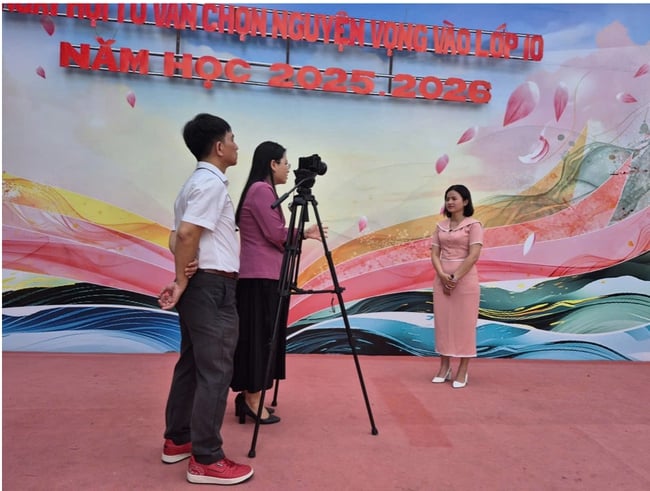
MSc. To Thi Van Anh was interviewed by Nguoi Lao Dong Newspaper during the 10th grade admissions festival for the 2025-2026 school year.
Propose
To achieve the goal of having a unified set of textbooks within 12 months, Vietnam can learn from the experiences of Singapore, Finland and ourselves, but flexible adjustments are needed.
Establish a special National Steering Committee
Function: This board will include leading experts from the Ministry of Education and Training, scientists, teachers and reputable publishers. The board has the power to make quick decisions, bypassing some cumbersome administrative procedures.
Mission: Unify the core curriculum: Quickly review the current curriculum, focus on competencies and qualities, integrate educational activities such as Life Skills, STEM, AI, etc. to avoid overloading students with many activities included in school teaching.
Assignment of compilation: Assign compilation tasks to groups of authors with experience and competence that have been assessed. Each group will be responsible for compiling one subject.
To achieve the goal of having unified textbooks in just 12 months, a special National Steering Committee needs to have the following powers:
Shorten the financial approval process
Instead of having to go through many steps of reviewing and approving the budget for each small item (for example: compilation costs for each subject, trial printing costs...), this Board will be given a special and unique budget fund. The Board has full authority to decide on spending within this fund, as long as it serves the common goal. This eliminates time-consuming approval steps, helps the funds reach the authors and experts quickly, ensuring that the work is not delayed.
Flexibility in choosing experts
According to the normal process, the selection of members of the appraisal council or the group of authors often has to comply with regulations on standards, documents, and even examinations. The Steering Committee has the right to directly appoint the most prestigious and experienced scientists, teachers, and education experts to key positions. By skipping these administrative procedures, the Committee will quickly assemble an elite team that is most suitable for the job.
Speed up content review and approval
Instead of having to meet many times with a large number of members, the Board can delegate authority to a core subcommittee to review and approve the content on a rolling basis. Comments and edits will be discussed and decisions will be made directly, without having to go through many rounds of documents and wait for signatures from many levels of leadership.
Rolling review: Instead of compiling the entire book series and then reviewing it, author groups will compile it chapter by chapter, semester by semester and submit it for review as soon as it is completed. The review board will work continuously to approve each section, helping to shorten the waiting time.
Parallel Testing: While drafts are being written and reviewed, a pilot group of schools will be selected to test the completed chapters. Feedback from this testing will be incorporated immediately into the revision of the draft.
Focus on digitalization and technology
Electronic documents: Take advantage of technology to compile and review electronic textbooks (e-books) in advance. This will help authors edit easily, the review board can give direct comments on the manuscript, and the publisher can print faster.
Online management system: Build an online system so that author groups, appraisal councils and the Ministry of Education and Training can work and exchange information transparently and quickly.
Allocate resources appropriately
Finance: A special budget is needed to pay the authors and experts, ensuring they can work full-time at a high intensity.
Human Resources: Focus the best, most experienced people on a single core team to optimize work efficiency.
Readers are invited to contribute ideas on "How to soon have a unified set of textbooks?"
The policy of "One program, many textbooks" has been in operation for many years, but has now given rise to many practical problems that need to be solved.
The Government has just issued Resolution No. 281/NQ-CP promulgating the Action Program to implement Resolution No. 71-NQ/TW of the Politburo. The Government requested the Ministry of Education and Training to preside over, review and complete the general education program, increase the duration of science, technology, information technology and arts subjects; especially ensure the provision of a unified set of textbooks nationwide, to be used from the 2026-2027 school year.
If students in all regions learn the same textbook content, they will have the opportunity to access the same knowledge, regardless of where they live or local conditions. With a unified set of textbooks, books can be reused in many places, from the previous generation to the next generation, or can still be used when transferring schools.
Faced with that urgent situation, and in order to join hands to effectively implement the Central Government's decisions on innovation and improving the quality of education, the Lao Dong Newspaper opens a forum "How to soon have a unified set of textbooks?", inviting readers from all regions to join in giving advice.
Articles should be sent via email to: bandoc@nld.com.vn; or giaoduc@nld.com.vn. Short comments can be sent to the "Send comments" box right below this newsletter.
Source: https://nld.com.vn/de-xuat-viet-bo-sach-giao-khoa-moi-trong-12-thang-196250926111457496.htm


![[Photo] Prime Minister Pham Minh Chinh attends the 1st Hai Phong City Party Congress](https://vphoto.vietnam.vn/thumb/1200x675/vietnam/resource/IMAGE/2025/9/27/676f179ddf8c4b4c84b4cfc8f28a9550)



![[Photo] Soldiers guard the fire and protect the forest](https://vphoto.vietnam.vn/thumb/1200x675/vietnam/resource/IMAGE/2025/9/27/7cab6a2afcf543558a98f4d87e9aaf95)




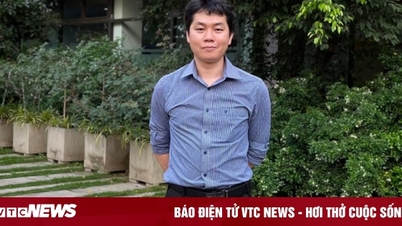




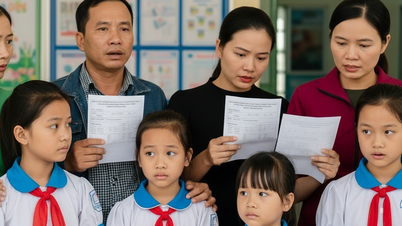







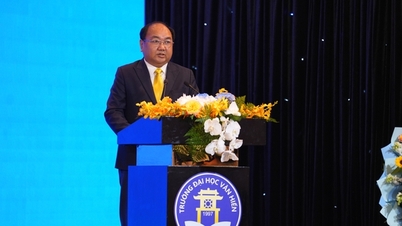































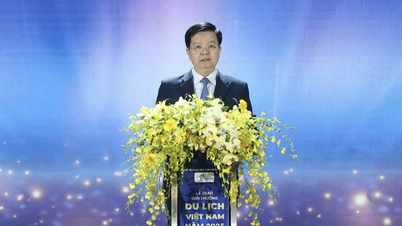
















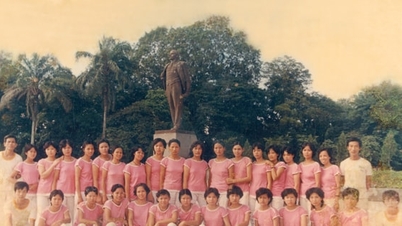

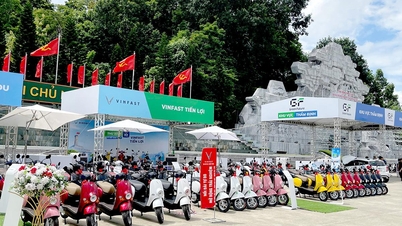
















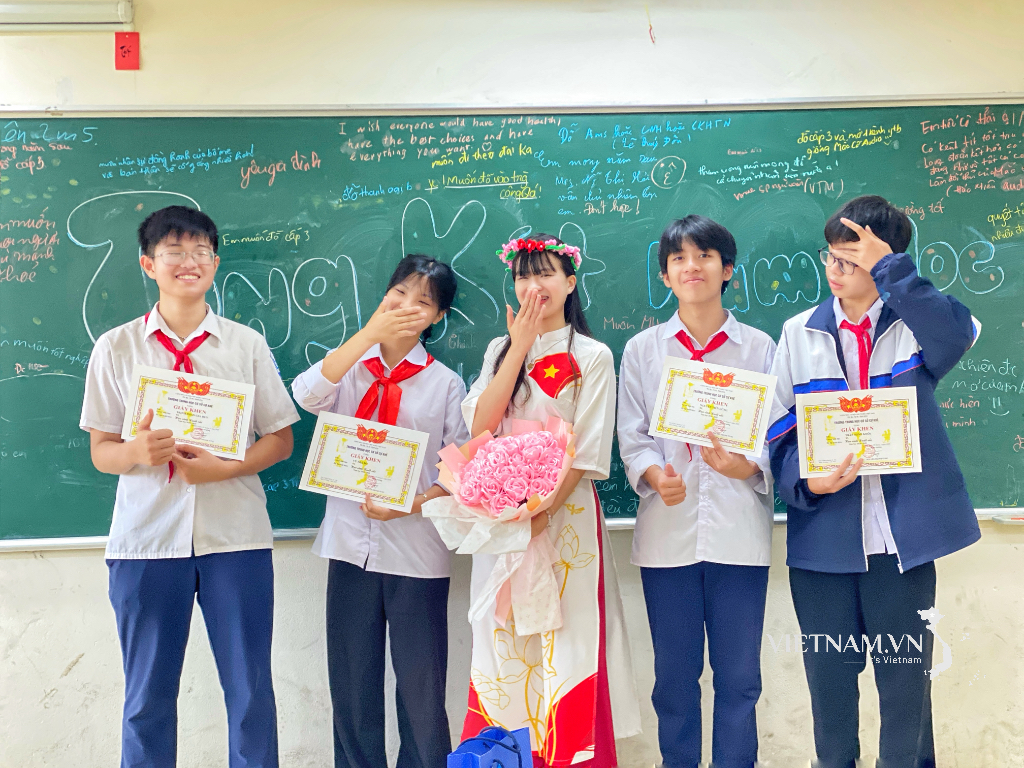



Comment (0)